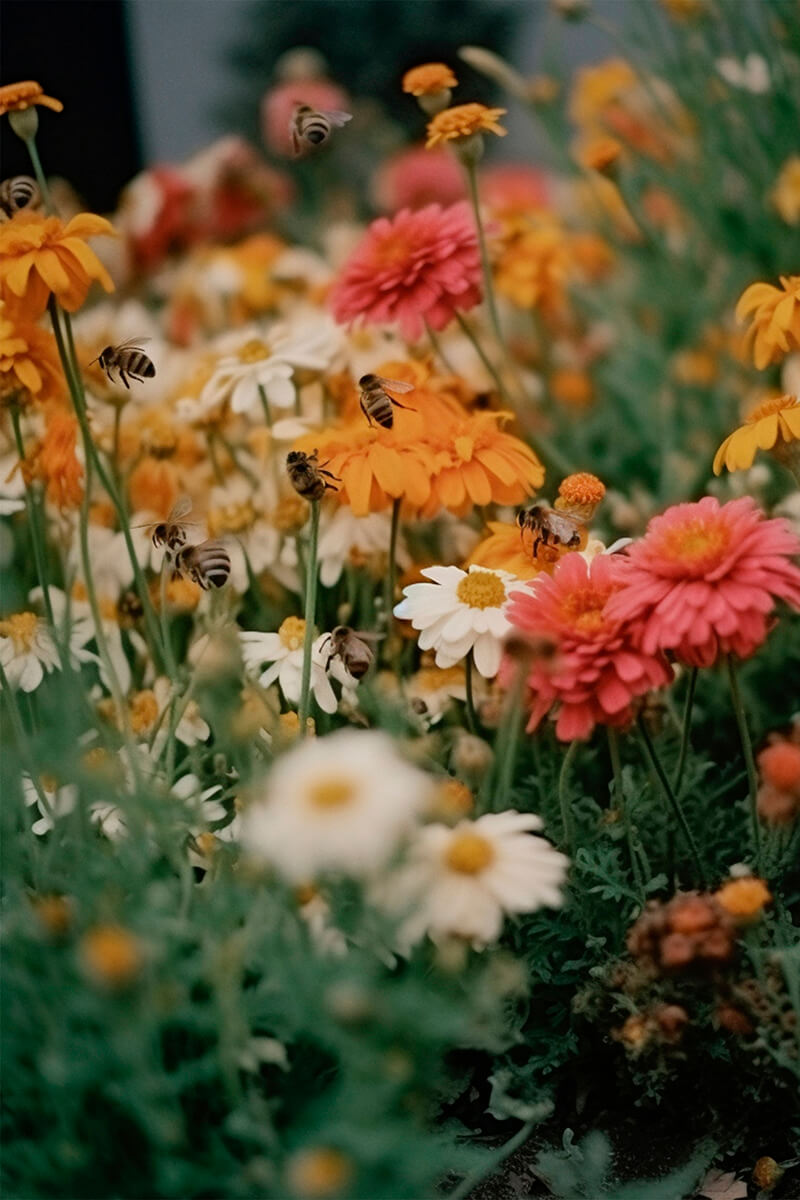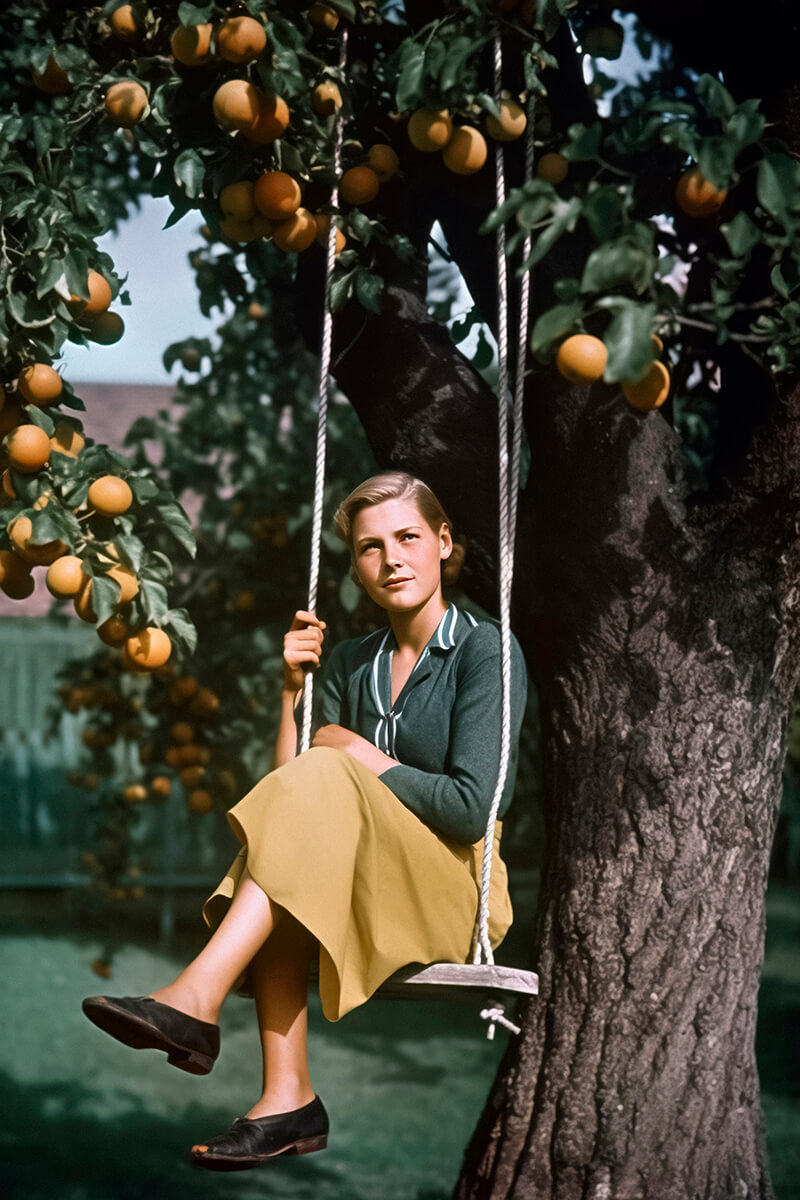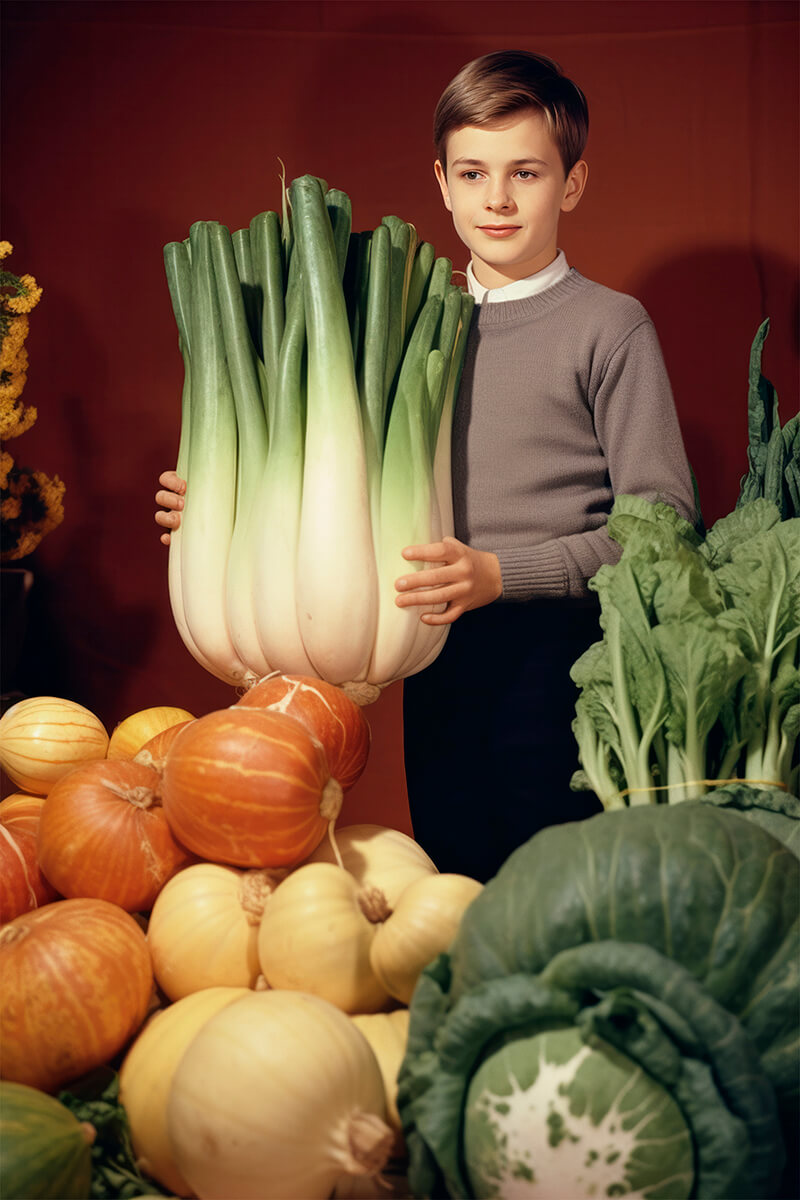Bruce Eesly
New Farmer
New Farmer (2023) questions the dominant narrative of the Green Agricultural Revolution through a blurring of fact and fiction. The project explores our extractive relationship to nature and the way history is made and perceived through images.

The photographs we’ve been shown in brochures and business reports of agricultural corporations suggest that the Green Revolution was a complete success: the abundant growth of new high-yielding corn varieties is contrasted with meagre harvests from traditional farming. Satisfied farmers sit on new machines that do all the hard work for them. No unwanted weeds in sight. The results are there for everyone to see. But is this the whole truth?
New Farmer poses as a historical document and seems to reiterate the success story of the Green Revolution: genetic manipulation results in new crop varieties which result in bigger and better harvests. As the story unfolds however, there are cracks. The images hover just slightly beyond believability until finally turning absurd. They are not documentary photographs from the 1960s as the pamphlet suggests, but AI-generated images. The story itself, while bearing some resemblance to actual events, is also made up: This alternative version doesn’t end in the giant fields of monocultures that surround us today, but instead brings about oversized vegetables.






With absurdity and humour, New Farmer questions the dominant narrative of the Green Revolution and aims to highlight our techno-optimism and oversimplification of nature, inviting viewers to take a critical look at our place within the biosphere and the ripple effects of our actions.
New Farmer was presented at the Rencontres d'Arles (Arles, 2024), Fotoraum (Cologne, 2025), Jimei x Arles International Photography Festival (Xiamen, 2024) and Hangar Photo Art Center (Brussels, 2025), among others. The self-published book was nominated for the PHotoESPAÑA Best Photography Book of the Year Award and is one of the winners of the PhotoBookMuseum Dummy Award 2024.





